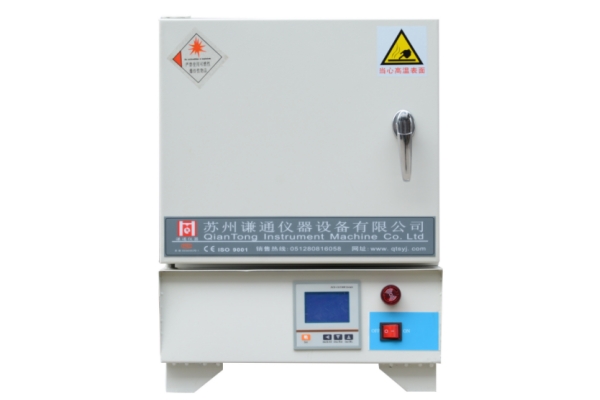Exploring the Versatility of Muffle Furnaces: Suitable Samples and Materials for Processing
2024-03-20
Muffle furnaces are versatile tools widely used in various industries and research fields for heat treatment, material synthesis, and laboratory testing. These furnaces offer controlled heating environments devoid of atmospheric contamination, making them ideal for processing a diverse range of samples and materials. Let's delve into the types of samples and materials that are suitable for processing in muffle furnaces, highlighting their broad applicability and versatility.
1. Ceramic Materials: Muffle furnaces are commonly used for sintering ceramic materials, including oxides, nitrides, and carbides. The high-temperature, inert atmosphere provided by the furnace facilitates the densification and bonding of ceramic particles, resulting in durable and high-performance ceramic products.
2. Metal Alloys: Muffle furnaces are well-suited for annealing, tempering, and heat treating metal alloys to enhance their mechanical properties and microstructure. Metal samples, such as steel, aluminum, copper, and titanium alloys, can undergo controlled heating and cooling cycles in the furnace to achieve desired hardness, strength, and ductility.
3. Glassware: Muffle furnaces are utilized for annealing and glass-forming processes in the production of laboratory glassware, optical components, and specialty glass products. The uniform heating and controlled cooling provided by the furnace help relieve internal stresses and prevent thermal shock, resulting in high-quality, crack-free glass products.
4. Catalysts: Muffle furnaces play a crucial role in catalyst synthesis and activation processes for chemical reactions in catalysis research and industrial applications. Catalyst samples, such as supported metal catalysts and zeolites, can be calcined, reduced, or oxidized in the furnace to enhance their catalytic activity and selectivity.
5. Powdered Materials: Muffle furnaces are utilized for thermal treatment of powdered materials, including pharmaceuticals, pigments, and electronic materials. Powder samples can undergo processes such as drying, calcination, and decomposition to remove moisture, volatile impurities, or organic binders and improve material purity and stability.
6. Polymer Samples: Muffle furnaces are employed for thermal processing of polymer samples in polymer science and materials research. Polymer samples can undergo processes such as thermal degradation, cross-linking, and annealing to modify their molecular structure, crystallinity, and thermal properties.
7. Carbonization and Pyrolysis: Muffle furnaces are used for carbonization and pyrolysis processes to convert organic materials, such as biomass, plastics, and waste products, into carbonaceous materials or biochar. These processes involve heating the organic samples in an oxygen-limited environment to induce thermal decomposition and carbonization.
8. Ceramic and Glass Crucibles: Muffle furnaces are compatible with a variety of crucible materials, including ceramic and quartz glass crucibles, for containing and processing samples. These crucibles offer high thermal stability, chemical resistance, and inertness, making them suitable for a wide range of applications in the furnace.
9. Laboratory Samples: Muffle furnaces are utilized in laboratories for various analytical and research purposes, including ashing, calcination, and thermal gravimetric analysis (TGA). Laboratory samples, such as soils, minerals, polymers, and biomaterials, can be processed in the furnace to remove organic matter, determine moisture content, or analyze thermal decomposition behavior.
In conclusion, muffle furnaces offer a versatile and reliable platform for processing a wide range of samples and materials across numerous industries and research disciplines. From ceramics and metals to polymers and catalysts, the controlled heating environment provided by muffle furnaces enables precise and uniform treatment of diverse materials, facilitating the development of advanced products and technologies. Whether in materials science, chemistry, metallurgy, or manufacturing, muffle furnaces continue to be indispensable tools for researchers, engineers, and technicians seeking to unlock the potential of various materials through controlled heat treatment processes.



